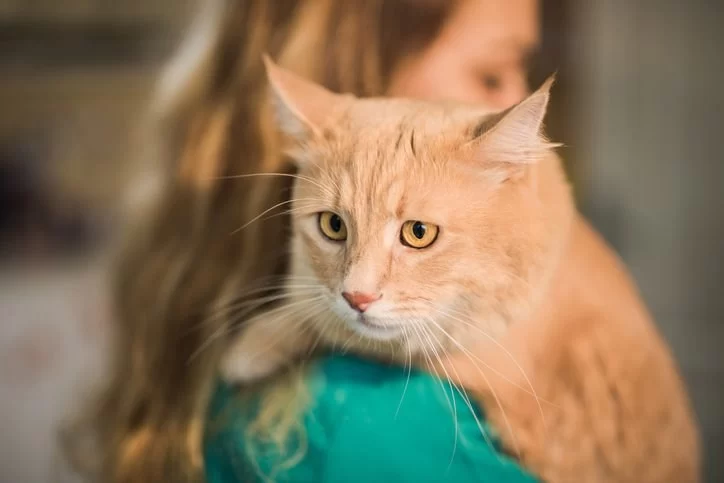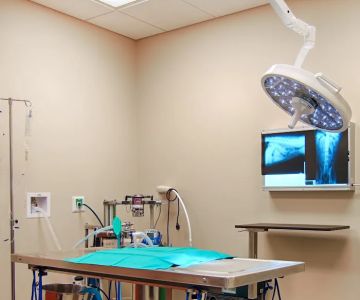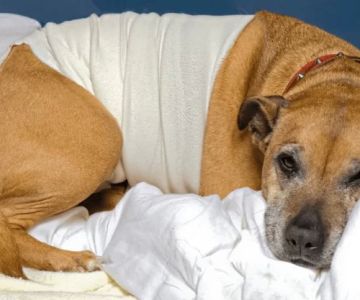Cat Coughing with Wheezing Sound: What Does It Mean?
- 1. Understanding Cat Coughing and Wheezing
- 2. Common Causes of Coughing and Wheezing in Cats
- 3. When to Worry About Your Cat Coughing and Wheezing
- 4. Treatment Options for Cats with Coughing and Wheezing
- 5. How to Prevent Coughing and Wheezing in Cats
- 6. Why Choose Hidden Brook Veterinary for Your Cat's Health
1. Understanding Cat Coughing and Wheezing
Coughing and wheezing in cats are not uncommon, but they can be worrying for pet owners. While a cough might be a simple response to an irritant, wheezing can signal more serious respiratory issues. Wheezing sounds are often a result of airflow obstruction or narrowing of the airways, making breathing difficult for your cat. If your cat is coughing with a wheezing sound, it’s important to monitor the symptoms and consider seeking veterinary advice.
Cats are generally very good at hiding discomfort, so a persistent cough or wheeze could indicate an underlying health problem that requires attention. Early intervention can prevent complications, so it's essential to pay close attention to your cat's behavior.
2. Common Causes of Coughing and Wheezing in Cats
Several factors can contribute to a cat coughing and wheezing. Some of the most common causes include:
- Asthma: Feline asthma is a chronic condition where the airways become inflamed and narrowed, leading to coughing, wheezing, and difficulty breathing. It is often triggered by allergens such as dust, pollen, or smoke.
- Respiratory Infections: Both viral and bacterial infections can cause coughing and wheezing. Upper respiratory infections in cats are common and can result from exposure to sick animals or environmental factors.
- Allergies: Cats, like humans, can have allergic reactions to various environmental factors, including dust, mold, or certain foods. These allergies can lead to wheezing and coughing episodes.
- Heartworm Disease: Although more common in dogs, heartworm disease can also affect cats, leading to coughing, wheezing, and other respiratory symptoms. It is caused by parasites living in the lungs and heart.
- Foreign Objects: Cats are curious by nature, and sometimes they might inhale small objects or particles that get stuck in their airways, causing coughing and wheezing as they try to clear the obstruction.
3. When to Worry About Your Cat Coughing and Wheezing
While occasional coughing and wheezing in cats may not always be a cause for alarm, there are situations where immediate attention is required. You should be concerned if:
- The wheezing becomes persistent: If your cat’s coughing and wheezing continue for several days or worsen over time, it’s important to consult a veterinarian.
- Difficulty breathing: If your cat is struggling to breathe, has rapid or labored breathing, or shows signs of distress, this could indicate a serious condition like asthma, pneumonia, or heart disease.
- Other symptoms: If your cat’s coughing is accompanied by other signs like vomiting, lethargy, or loss of appetite, a visit to the vet is essential for a proper diagnosis.
Don’t hesitate to contact your vet if you're unsure about your cat’s symptoms or if you notice any alarming changes in their behavior. Quick action can often lead to better outcomes.
4. Treatment Options for Cats with Coughing and Wheezing
The treatment for your cat’s coughing and wheezing will depend on the underlying cause of the symptoms. Some common treatment options include:
- Medications: For conditions like asthma, corticosteroids or bronchodilators may be prescribed to reduce inflammation and open up the airways. Antibiotics or antivirals may be needed if an infection is present.
- Inhalers: Cats with asthma may benefit from inhalers, which can help manage their condition and reduce wheezing. These are typically used with a specialized mask that fits over the cat’s face.
- Allergy Management: If allergies are the culprit, reducing exposure to allergens or using antihistamines can help control symptoms.
- Parasite Control: For cats with heartworm disease, treatment for the parasites is essential. This often involves a combination of medications and supportive care to manage the symptoms.
Your veterinarian will guide you through the best treatment options based on your cat’s specific condition and health needs.
5. How to Prevent Coughing and Wheezing in Cats
Prevention is always the best approach when it comes to your cat’s health. Here are some tips to help prevent coughing and wheezing:
- Regular Vet Check-ups: Routine veterinary exams can help detect underlying conditions early and ensure that your cat is healthy and free of respiratory issues.
- Keep Your Home Clean: Reducing allergens in your home by vacuuming regularly, using air purifiers, and minimizing dust can help manage asthma and other respiratory conditions.
- Limit Exposure to Smoky Environments: Avoid exposing your cat to cigarette smoke, as it can irritate their lungs and trigger asthma or other respiratory issues.
- Parasite Prevention: Keep your cat on regular heartworm and flea preventatives to avoid parasitic infections that could cause respiratory symptoms.
6. Why Choose Hidden Brook Veterinary for Your Cat's Health
If you notice your cat coughing with a wheezing sound or any other concerning symptoms, Hidden Brook Veterinary is here to help. Our team of experienced veterinarians can assess your cat’s condition, provide accurate diagnoses, and recommend the best treatment options. We offer compassionate care and are committed to improving your cat’s health and quality of life.
Whether your cat is dealing with respiratory issues or any other health concern, we are dedicated to providing the highest level of care. Visit us today to schedule an appointment and ensure that your cat stays healthy and happy.












